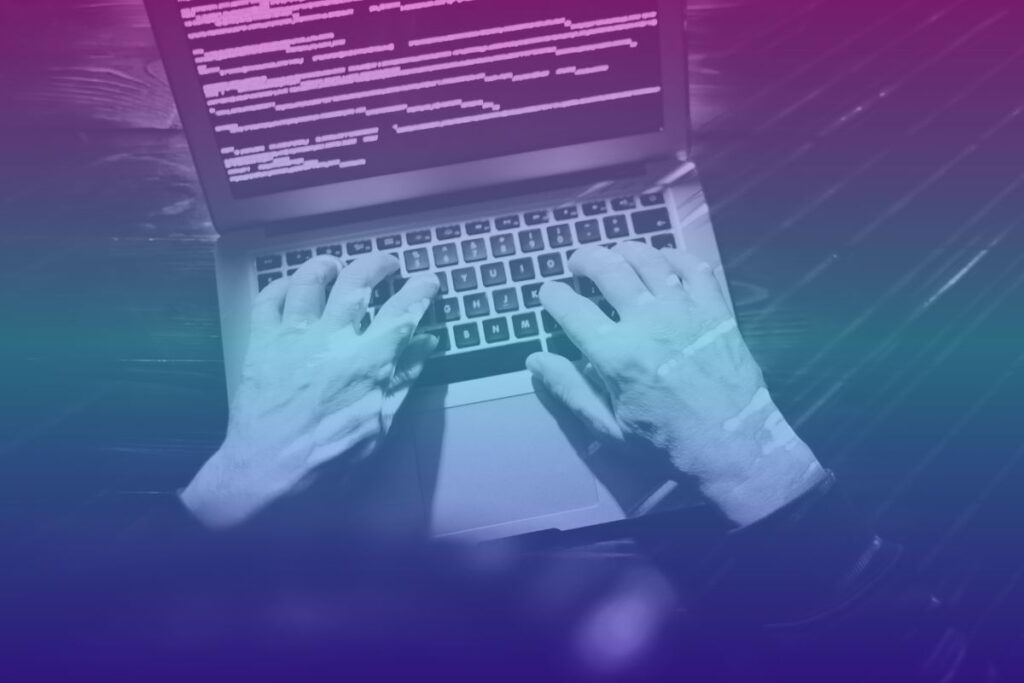As digital platforms continue to dominate every aspect of life, verifying that individuals are who they claim to be is essential in safeguarding both businesses and consumers.
So, why is identity verification important?
Essentially, as the volume of online and remote transactions grows, so do the risks of fraud, data breaches, and noncompliance with regulatory standards. Verifying that individuals are who they claim to be is essential for protecting sensitive information and building trust in online platforms.
Organisations risk significant financial loss and reputational damage without reliable verification systems in place. Fortunately, with advancements in technology, identity verification is faster and easier for businesses than ever before.
We’ll delve into the importance of identity verification below, exploring how it helps businesses prevent fraud, meet regulatory requirements, streamline operational efficiency, and more.
1. Fraud and Loss Prevention
One of the most crucial roles of identity verification solutions is in protecting businesses from fraud and minimising financial loss.
Fraud is the most commonly experienced crime in the UK, accounting for over 40% of crime in England and Wales. The scale of the issue is staggering, with the amount of fraud in the UK more than doubling to £2.3bn in 2023.
As digital transactions and online interactions continue to grow, so do the opportunities for fraudsters to exploit weaknesses in verification systems. Implementing advanced identity verification solutions is one of the most effective ways businesses can protect themselves from this growing threat.
Using technology such as biometric recognition, document authentication, and behavioural analysis, businesses can ensure that the person they are dealing with is who they claim to be. These real-time checks help prevent fraudulent activity before it occurs, saving businesses from the financial and reputational costs of dealing with fraud after the fact.
By reducing fraud, identity verification solutions help protect against financial loss and maintain customer trust.
The rise in fraud cases means that customers are more likely to choose businesses that prioritise security and handle their sensitive data responsibly. This helps foster long-term loyalty and strengthen brand reputation, which is crucial in an increasingly competitive market.

2. Streaming Regulatory Compliance
One of the key benefits of identity verification is its ability to streamline regulatory compliance, especially with complex requirements like KYC and AML regulations.
By ensuring that customers are accurately identified, businesses can easily meet these regulatory obligations, reducing the risk of non-compliance and potential fines.
Beyond KYC and AML, identity verification plays a crucial role in industries with specific compliance needs, such as age verification for certain products and safeguarding customers in vulnerable sectors.
The transparency of modern identity verification systems means organisations can demonstrate how their decision-making aligns with regulatory standards, ensuring accountability at every step.
Thanks to advanced technology, such as facial recognition and document authentication, identity verification offers precision that’s far superior to traditional manual checks. This accuracy improves the reliability of compliance efforts and simplifies demonstrating due diligence, particularly for requirements like Right to Work checks and AML assessments.
3. Boosting Operational Efficiency
The benefits of identity verification also include improving operational efficiency. Identity verification technology can streamline everyday processes, making them faster, more accurate, and less resource-intensive.
Traditional methods, such as in-person visits or manually posting documents, were often time-consuming and could take weeks to complete. Today, digital verification can complete these checks in just minutes. Platforms like Credas, for example, can validate over 4,000 different types of ID in seconds, offering both speed and scale.
Multi-layered automated identity verification approaches that combine techniques like biometrics help reduce manual interventions, lowering administrative costs. This shift doesn’t just improve the customer journey, it directly impacts the bottom line. According to McKinsey, digital ID-enabled processes have the potential to reduce onboarding costs by 90%.
This kind of operational transformation frees up internal teams, allowing them to focus less on administrative verification and more on driving core business growth. For customers, it means less friction and faster access to services, ultimately creating a customer-friendly onboarding experience.

4. Supporting Financial Inclusion
Not everyone has access to traditional identification documents, like passports or licenses. Experian also claims that over 5 million UK residents remain locked out of the financial system, not because of poor credit, but because they have little to no credit history at all. These individuals, known as credit invisibles, struggle to access everyday financial products, like credit cards and bank accounts.
This credit-invisible population includes young people just starting out, older adults who have paid off debts and rarely use credit, and newcomers to the country who haven’t yet established a financial footprint. Without enough verifiable data, they’re often excluded from services many take for granted.
This lack of visibility can prevent access to public services, as digital identity checks rely on credit records for verification. However, identity verification solutions are evolving to close that gap. Modern tools pull from a variety of data sources, like mobile phone accounts or utility bills, to build a more complete picture of someone’s identity.
While this may not grant immediate access to high-value financial products, it allows individuals to take the first steps towards gaining access to basic banking services, putting them on the path to financial inclusion.
5. Improving Customer Experience
With more services, including banking, shopping, and travel moving online, identity verification technology is keeping pace by providing businesses and consumers a seamless, fast, and secure experience that they expect.
With digital verification tools, customers can easily upload an image of their identity document (like a visa or passport) and take a selfie, with technology quickly validating their identity in just a few minutes.
This process is efficient and user-friendly, ensuring that customers don’t face frustrating hurdles. 73% of consumers claim that the account opening process can make or break their relationship with a digital service. If the verification process is too complex or time-consuming, many customers will simply abandon their attempts entirely.
Intuitive identity verification solutions help businesses avoid this issue by offering a smooth, hassle-free experience, increasing conversion rates and customer satisfaction.
By allowing customers to verify their identity at their own convenience and from the comfort of their own homes, businesses can provide faster access to services without compromising security. This ease of use builds trust and confidence, fostering stronger, long-term relationships with customers.

Why Choose Credas For Identity Verification
To sum up, why is identity verification important?
Identity verification is a tool that helps businesses improve customer experiences, boost operational efficiency, maintain regulatory compliance, and protect themselves against fraud.
At a time when identity verification has never been more important, businesses need a partner they can trust. That’s where Credas comes in.
Credas is a leading digital due diligence provider, transforming how organisations handle identity verification, compliance, and onboarding processes.
- Advanced biometric technology and document authentication for fast, accurate identity checks.
- Fully certified and compliant with ISO 27001 and DIATF standards.
- Flexible deployment options via secure web portal or API integration with smart onboarding tools.
- Widely trusted and licensed across the industry, powering leading IDV and AML solutions.
- Built-in support for AML, KYC, and Right to Work/Rent checks
Credas empowers businesses to onboard customers faster, reduce fraud, and maintain full regulatory confidence.
Get in touch with us today to find out more.
